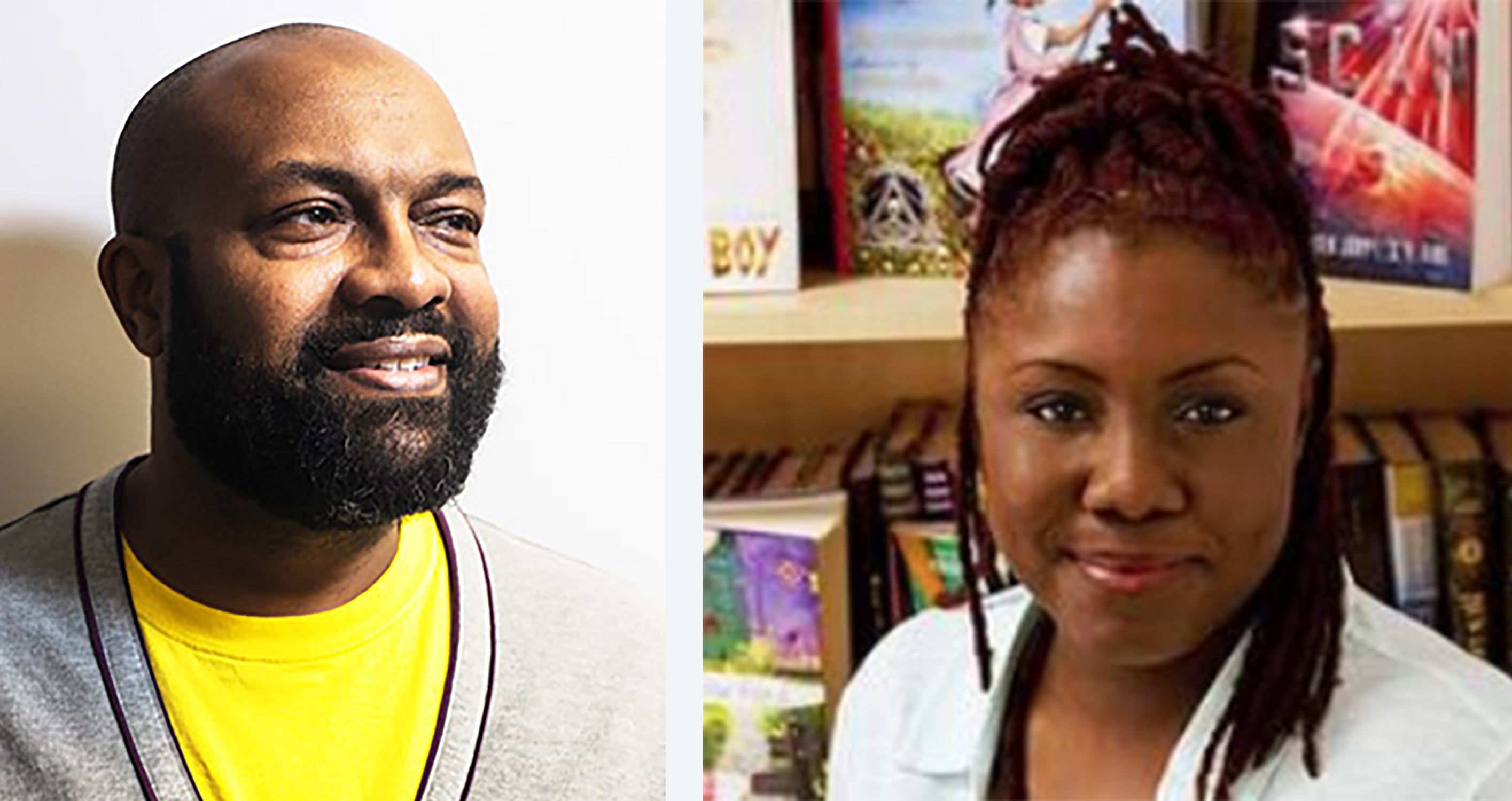
- This event has passed.
WLP Faculty/Alum Series: Jabari Asim & Stacey Barney MFA ’04
April 18, 2019 | 6:00 pm - 7:30 pm
FreeEvent Navigation

Please RSVP by April 15, 2019. Non-Emerson guests must RSVP to be given security access to the event.
Free and open to the public.
—
An accomplished poet, playwright, and writer, Jabari Asim has been described as one of the most influential African American literary critics of his generation. Asim has served as the editor-in-chief of Crisis magazine–the NAACP’s flagship journal of politics, culture, and ideas–and as an editor at The Washington Post, where he wrote a syndicated column on politics, popular culture, and social issues. He is the recipient of a Guggenheim Fellowship in Creative Arts and is the author of six books for adults and nine books for children. His most recent works are We Can’t Breathe, A Child’s Introduction to African American History, and Brother Nat.
Stacey Barney (MFA ’04) is an Executive Editor at G.P. Putnam’s Sons Books for Young Readers. She has edited the #1 New York Times bestselling The Wrath and the Dawn by Renee Ahdieh as well as Coretta Scott King Illustrator Award-winning Firebird by American Ballet Theatre soloist Misty Copeland, illustrated by Christopher Myers, and Corretta Scott King Illustrator Honor-winning Ellen’s Broom by Kelly Starling Lyons, illustrated by Daniel Minter. She has also edited award-winning authors Kristin Levine (The Lions of Little Rock), Tara Sullivan (The Bitter Side of Sweet) as well as New York Times bestsellers The Reader by Traci Chee and Happy by Pharrell Williams.
Did You Know?
Certain books were “banned in Boston” at least as far back as 1651, when one William Pynchon wrote a book criticizing Puritanism.